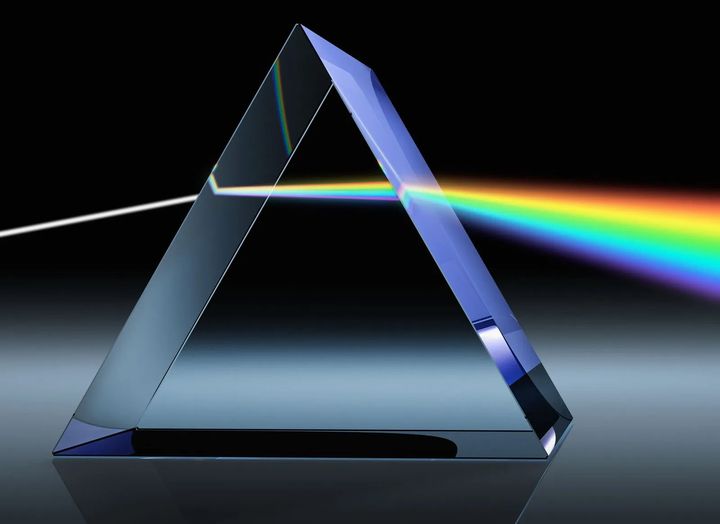
A prism breaks light that crosses through it into colors. It shows you the truth behind the light. It does this the same way that a recipe tells you how the finished dish will taste and look like. But wait, a recipe does not say anything about the finished dish, that’s probably why you have a picture of it in the cookbook. Pretty trite and obvious, right.
Sure, and therefore we must try to define the terms “truth”, “correctness”, and “usefulness”. The prism is true unless it’s broken. It’s also correct to a certain degree. But to see the light in both a real and metaphorical sense, the prism must go! I’m not even talking about lies and deceit, mind you. Just the truth in colors and the usefulness of knowing it’s a reflection of a cathedral in France, which the prism cannot tell you it is.
Another example, called the “illegal pixel”. As it stands today, Mickey Mouse is still under copyright. Disney owns the right to the character and any sort of picture or painting of him. That’s right, Disney, has tried to forbid unauthorized paintings of Mickey Mouse and other of their characters on the walls of a day care center in the US!
So, if I take picture of my living room and a picture of Mickey Mouse and shrink both to a resolution of 1×1. Each picture will be EXACTLY one pixel. Is one under copyright and the other is not? If no, then at what resolution will one of them be? This is a fun exercise for a copyright lawyer, and yes, this discussion is real. As in it has been in the debate many years ago.
This is the problem with many “one-pixel” truths, building a composite lie. Read up of survivor bias, selection bias and cherry picking if you do not believe me.
A very simple example of this:
The full resolution: “I was not in the bank when the robbery occurred. I did not intend to rob the bank.”
Some minor “compression” to save space in the sentence above. “I was in the bank when the robbery occurred. I did intend to rob the bank.”
If you count the words, you can notice I did not do much change to it. It should be pretty close to intact.
You get this?
1) Representation cannot alter the meaning of the original statement.
2) All facts in the case must be correctly represented. You may not break them down and “choose” what is presented.
Hey! If this is how it is, wouldn’t that make short news blurbs, tweets, and Facebook groups with an agenda just a bunch of worthless garbage?
Well, yes, it would. And thanks for making my point for me.